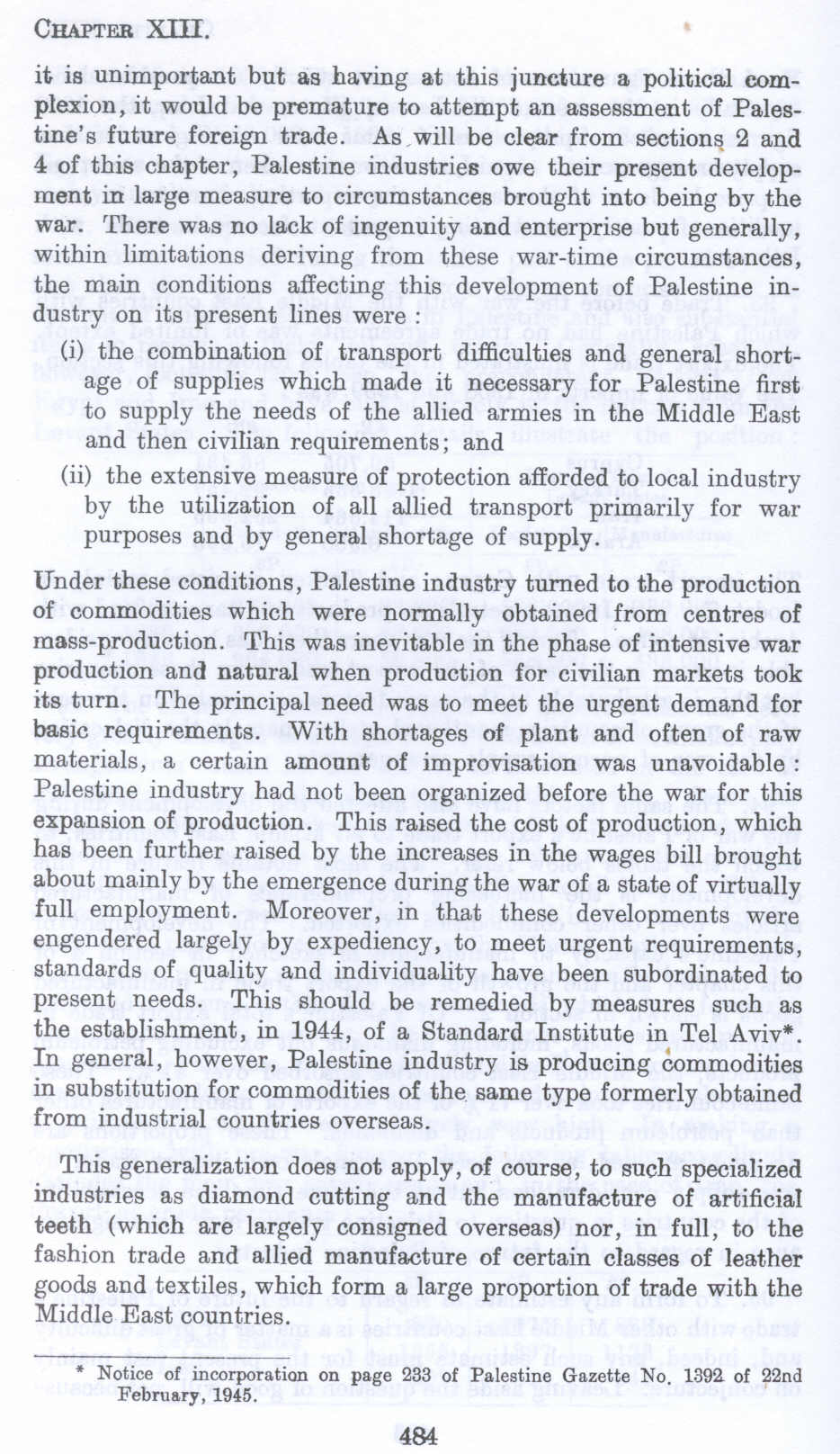| Prev | Next |  |
| Prev | Next |
| PalestineRemembered | About Us | Oral History | العربية | |
| Pictures | Zionist FAQs | Haavara | Maps | |
| Search |
| Camps |
| Districts |
| Acre |
| Baysan |
| Beersheba |
| Bethlehem |
| Gaza |
| Haifa |
| Hebron |
| Jaffa |
| Jericho |
| Jerusalem |
| Jinin |
| Nablus |
| Nazareth |
| Ramallah |
| al-Ramla |
| Safad |
| Tiberias |
| Tulkarm |
| Donate |
| Contact |
| Profile |
| Videos |
British Mandate: A Survey of Palestine: Volume I - Page 484 |
Disclaimer
The above documents, article, interviews, movies, podcasts, or stories reflects solely the research and opinions of its authors. PalestineRemembered.com makes its best effort to validate its contents.


Post Your Comment
*It should be NOTED that your email address won't be shared, and all communications between members will be routed via the website's mail server.
it is unimportant but as having at this juncture a political complexion, it would be premature to attempt an assessment of Palestine's future foreign trade. As will be clear from sections 2 and 4 of this chapter, Palestine industries owe their present development in large measure to circumstances brought into being by the war. There was no lack of ingenuity and enterprise but generally, within limitations deriving from these war-time circumstances, the main conditions affecting this development of Palestine industry on its present lines were :
(i) the combination of transport difficulties and general shortage of supplies which made it necessary for Palestine first to supply the needs of the allied armies in the Middle East and then civilian requirements; and
(ii) the extensive measure of protection afforded to local industry by the utilization of all allied transport primarily for war purposes and by general shortage of supply.
Under these conditions, Palestine industry turned to the production of commodities which were normally obtained from centres of mass-production. This was inevitable in the phase of intensive war production and natural when production for civilian markets took its turn. The principal need was to meet the urgent demand for has ic requirements. With shortages of plant and often of raw materials, a certain amount of improvisation was unavoidable :
Palestine industry had not been organized before the war for this expansion of production. This raised the cost of production, which has been further raised by the increases in the wages bill brought about mainly by the emergence during the war of a state of virtually full employment. Moreover, in that these developments were engendered largely by expediency, to meet urgent requirements, standards of quality and individuality have been subordinated to present needs. This should be remedied by measures such as the establishment, in 1944, of a Standard Institute in Tel Aviv". In general, however, Palestine industry is producing commodities in substitution for commodities of the same type formerly obtained from industrial countries overseas.
This generalization does not apply, of course, to such specialized industries as diamond cutting and the manufacture of artificial teeth (which are largely consigned overseas) nor, in full, to the fashion trade and allied manufacture of certain classes of leather goods and textiles, which form a large proportion of trade with the Middle East countries.
____________________________
* Notice of incorporation on page 233 o( Palestine Gazette No. 1392. of 22nd February, 1945.
Page 484